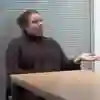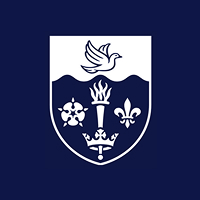Emma Butcher: “The Brontë novels that everyone reads are the tip of the iceberg”
Emma Butcher (PhD English Literature, 2016) began by exploring how the Brontës imagined war in their unpublished writing. Her fascination with childhood and conflict took her from literary archives to the fascinating role of military historian at the Royal United Services Institute.

Degree
PhD English Literature
Year of graduation
2016
Current occupation
Historian
Your forthcoming book is on the subject of children in times of war. What drew you to this subject?
It started with my PhD, which I did at Hull, on the Brontës and war. That was a case study of children who lived in the early Nineteenth Century. Britain had just been through the Revolutionary and the Napoleonic Wars, and the Brontës, as children, recreated the Napoleonic Wars in a kind of fantasy, war-gaming saga as they experienced it through reading about it.
The Brontë children had never been to war. Their father had not been part of the wars, but they took all the experiences they read about in magazines, in the newspapers. And they basically created this extraordinary kingdom and space to be able to talk about the emotions and experiences of war.
So, it started off with me realising that this particular case study, these four children, had the ability all the way from age 11 to grapple with extremities of human experience. And that made me think we don't really listen to children.
I am a historian and a lot of the research I have done is through the Nineteenth Century up to today. The reason I wanted to go into policy is because children are more affected by war now than they've ever been.
If we go back a little and look at the Twentieth Century, technology massively boomed and children could get involved in war in ways that they couldn't before. Before the invention of the AK 47, which is incredibly light, children did hold weaponry, but it was very cumbersome for them. This change in technology meant that a lot of rebel groups and units would employ child soldiers. It meant that children could now effectively be soldiers in a way that they could never have been before.
Today, we see the changing nature of war. Kids that are good at gaming or good at piloting drones are being recruited by armies across the world to become real-life military drone pilots.

Inspired in Hull
Children are more affected by war
now than they've ever been
You are a military historian at the Royal United Services Institute. What does that involve?
In my current role at RUSI I have a team that are involved in lots of fascinating projects. Not necessarily historical military, but also contemporary military. There are lots of specialists working on everything from AI through to Ukraine.
The Institute itself is historical. It was set up in 1831 by the Duke of Wellington. It's a historical institute which does lots of members events where you get lots of fantastic military historians coming in. I'm involved in some of the military history programming and events that go on there in our historic home, which is opposite Downing Street. The Institute's a think tank. Effectively what we do is use our knowledge to try and influence policy makers, humanitarian organisations and the military. When the Duke of Wellington set this up, it was meant to be a place where people could have conversations. That's exactly what the Institute still does. Ever since 1831.
You did your PhD on the Brontës and on a particular part of the Brontë’s work that isn’t well known. Could you share with us something that you discovered that surprised you?
I think the biggest thing is that the Brontë novels that everybody's read, like Jane Eyre and Wuthering Heights, are just the tip of the iceberg. All the stuff which I did my PhD on was something called the juvenilia, all the kinds of writings and scribbles and ephemera they did before they were published. And they were writing all this stuff together and in competition with each other between the ages of about 11 and 21.
You've got tons and tons of material that not a lot of people have read. It's an entire fantasy world that's as complex as, say, Lord of the Rings or Game of Thrones. And this exists in various bits and pieces and formats in different books, but it's like this amazing treasure trove of material that not a lot of people have tapped into.
So, whereas I was thinking about how they navigated war in there, there's everything from sexuality, through to class issues, through all of these amazing topics and themes that are ripe for a PhD or a dissertation.
The Brontë novels that everybody's read, like Jane Eyre and Wuthering Heights, are just the tip of the iceberg.
The [Brontë] Parsonage loves it when people engage with the juvenilia because it's just this very private, very untapped collection of literature, which was never intended for public consumption. The only place you can find it is in the Parsonage. There is an Oxford Press paperback, which has a couple of selections from it, which is called Tales from Glass Town, Angria, and Gondle, which you can buy, and it has selections. That's a good gateway into it, but a lot of it still just lives in either very expensive collections, which you have to go to a library to bring out, or it's there in the Brontë Parsonage. If you can go and get a reading afternoon, it's very atmospheric when you're on a gloomy afternoon, you're in the reading room and someone brings out the juvenilia. It's usually in these really, really tiny books, which you have to read with the magnifying glass. It's really quite an experience going to read them. The Brontës are fantasy writers before they’re anything else.
Could you tell us about your career path since doing the PhD?
I was awarded an early Career Fellowship at the University of Leicester, and the subject that I proposed was Children and War in the Nineteenth Century, which basically formed the foundations of the book that I'm writing now.
I did that for three years, and then I had a position for a year at Edgehill University and then I was lucky enough to get a position at King's College London to cover a maternity leave and work on some really interesting modules. Not just on Victorian stuff, but also things like AI and machines. It opened debates into thinking about more recent literature and recent ideas like AI conflict. So that was the career path after that. And it was during that time at King's, I felt a kind of academic vacuum.
That's why I applied to go to the Royal United Services Institute, because I knew there's research involved in that, lots of transferable skills, but also networking and the kind of policy experience that I didn't have. That's kind of been my weird and wonderful career since Hull.

Tracy Borman
BA, MSc, PhD History, 1997
Tracy Borman is Joint Chief Curator of Historic Royal Palaces and a successful author, best known for Elizabeth’s Women, a study of Elizabeth I told through the women who influenced her.

Ed Parnell
BA American Studies, 1996
Edward Parnell, a 1996 graduate in American Studies, is the author of Ghostland, shortlisted for the PEN Ackerley 2020 Award. His debut novel, The Listeners, won the Rethink New Novels Prize in 2014.

Guido Imbens
MSc Economics and Econometrics, 1986
Nobel Prize-winning economist Guido Imbens spent a year here, which inspired his PhD in Economics. He later became a Professor of Economics at Stanford Graduate School and was awarded the 2021 Nobel Prize for contributions to econometrics.